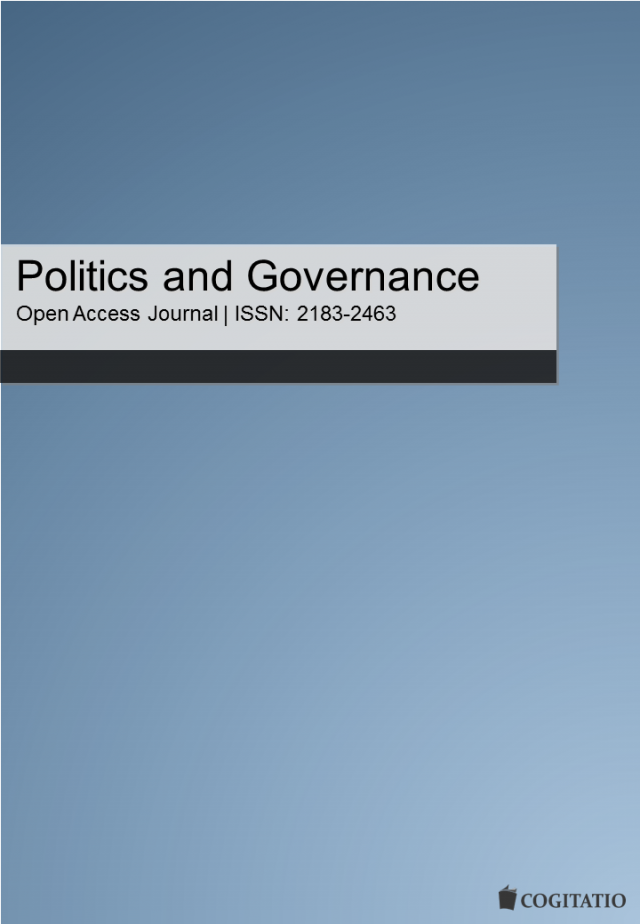Politics and Governance
Re-Embedding Trade in the Shadow of Populism/11/1
ISSN: 2183-2463
Publication date: Mar 2023
Cogitatio Press
Deadline: Tue, 15 Mar 2022


Politics and Governance is an internationally peer-reviewed open access journal that publishes significant and cutting-edge research drawn from all areas of political science.
Volume 11, Issue 1
Editor(s): Kevin Kolben (Rutgers Business School, USA) and Michèle Rioux (Université de Québec à Montreal, Canada)
Submission of Abstracts: 1-15 March 2022
Submission of Full Papers: 15-31 July 2022
Publication of the Issue: January/March 2023
Information: 30 years ago, John Ruggie published International Regimes, Transactions, and Change: Embedded Liberalism in the Postwar Economic Order, in which he argued that the postwar economic order was forged with a compromise. That compromise was that a multilateral economic regime of free trade would be established, but one that was tempered and governed by domestic regulation and social purpose. Instead, as Ruggie put it, “[t]he task of postwar institution reconstruction…was to…devise a framework which would safeguard and even aid the quest for domestic stability without, at the same time, triggering the mutually destructive external consequences that had plagued the interwar period.” That is, domestic states were granted latitude to protect domestic stability and develop trade safeguards and exceptions in order to ensure that the multilateral economic order could maintain legitimacy and win public support.
That compromise, however, has come under pressure. Recent research has shown that trade and investment liberalization have led to deeper, and more geographically concentrated, economic and social harm than many had anticipated. The WTO dispute settlement body has been often criticized for interpreting WTO agreements in ways that privilege free trade principles over domestic policy space. Populist politicians have helped mobilize opposition to trade. Consumers increasingly seek assurance that the goods they buy are made in socially acceptable labour conditions, and governments have passed transparency legislation to assist them in doing so. Citizens, long warier of trade than have been policymakers and academics, have questioned whether their identities as consumers should trump their identities as producers and community members. Finally, crises such as the COVID-19 pandemic have generated new and important questions about the costs of benefits of global supply chains and economic interdependence.
Building on the broad concepts of embedded liberalism, this special issue will examine how the global trade regime can and should be re-embedded in society at a time of great change and upheaval. The editors’ aim is not to center on Ruggie’s seminal paper, per se, but rather to broadly engage with some of the following themes: embedding the global economic order with social purpose in light of populist backlash; (re)building the legitimacy of global economic institutions and arrangements; and reconciling international economic relations in a Post-Trump, but perhaps not Post-Trumpist, world. Among the questions that authors might address are: Can multilateralism be transformed to achieve a new global economic compromise? How can the WTO and its dispute settlement body re-embed its decisions and agreements in a domestic or global society? What principles, rules, and mechanisms could be developed to address the new populism? These and other questions can be examined conceptually and/or through case studies.
Instructions for Authors: Authors interested in submitting a paper for this issue are asked to consult the journal's instructions for authors and submit their abstracts (maximum of 250 words, with a tentative title) through the abstracts system (here). When submitting their abstracts, authors are also asked to confirm that they are aware that Politics and Governance is an open access journal with a publishing fee if the article is accepted for publication after peer-review (corresponding authors affiliated with our institutional members do not incur this fee).
Open Access: The journal has an article publication fee to cover its costs and guarantee that the article can be accessed free of charge by any reader, anywhere in the world, regardless of affiliation. We defend that authors should not have to personally pay this fee and advise them to check with their institutions if funds are available to cover open access publication fees. Institutions can also join Cogitatio's Membership Program at a very affordable rate and enable all affiliated authors to publish without incurring any fees. Further information about the journal's open access charges and institutional members can be found here.











